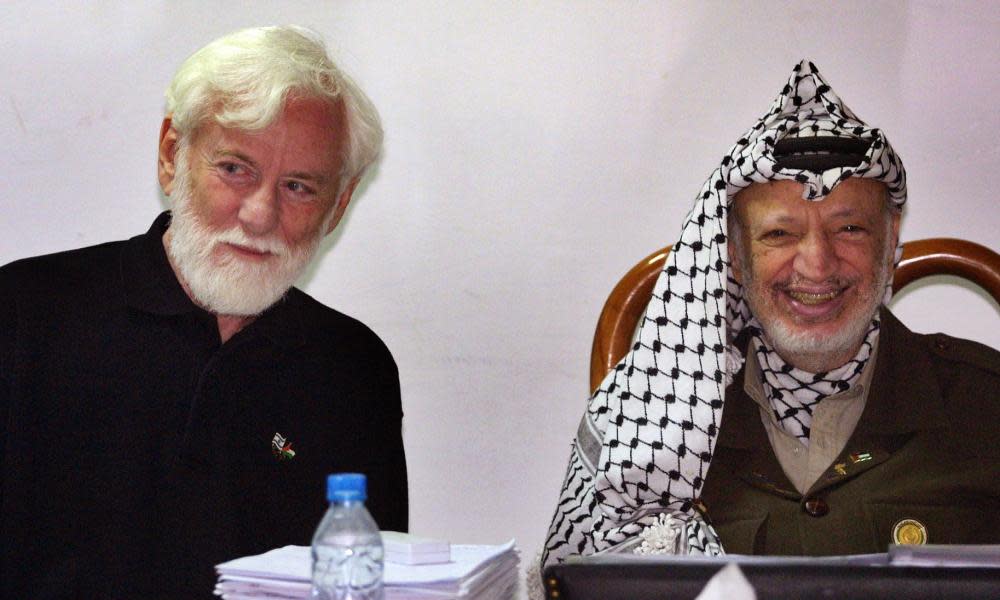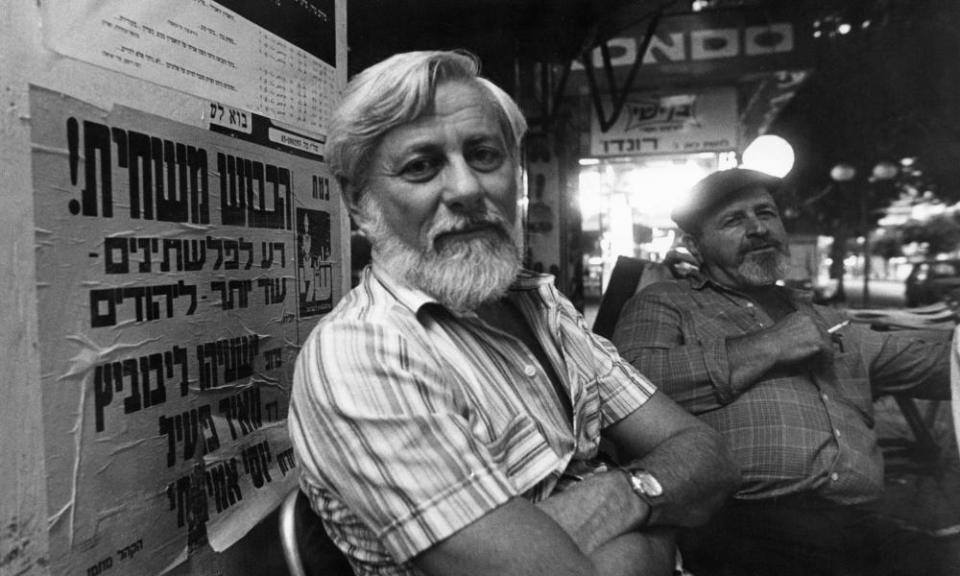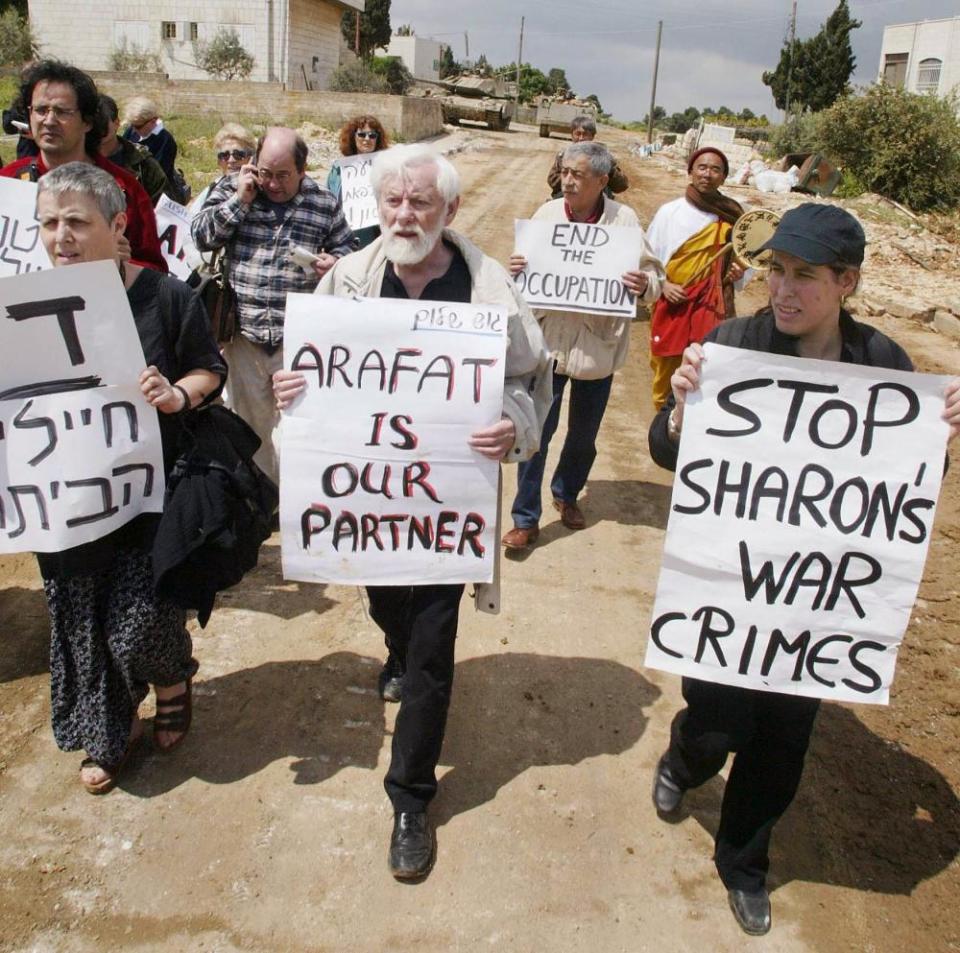Uri Avnery obituary

Uri Avnery, who has died aged 94, was a journalist, politician and activist who became one of Israel’s earliest and most articulate advocates of cooperation with the Palestinians and the creation of a Palestinian state.
He began his adult political journey as a member of Irgun, an underground armed Zionist movement fighting the British and Palestine’s indigenous Arabs, but resigned in 1942 in revulsion at its terrorist methods. Later, after several years as a member of the Israeli parliament, he courted major controversy by crossing the front lines in Beirut during the Israeli invasion of Lebanon in 1982 and meeting Yasser Arafat, the leader of the Palestine Liberation Organisation.
In 1993 he founded and headed a Peace Coalition (Gush Shalom) which became the first Israeli organisation to campaign for a boycott of goods produced in the West Bank Jewish settlements. Avnery said every settlement was “a landmine on the road to peace” and “the main reason for setting up settlements is to prevent the two-state solution – the only peace solution there is”.
As Israeli politics moved to the right and Orthodox religious parties gained strength, Avnery, a determined secularist and peacenik, became an increasingly lone voice. Rare among Israelis, he advocated talking to Hamas, the radical Palestinian group running Gaza. His shock of white hair and flashing eyes were seen less often at lectures and meetings but his energy and commitment never flagged. He continued writing a weekly column until the end of his life. In his last one, published on 4 August, he denounced the newly enacted basic law that gives privileges to Jews over Arabs and all other ethnic groups as “clearly semi-fascist”.

The son of Hilda and Albert Ostermann, he was born in Beckum, Germany, as Helmut Ostermann, into a prosperous German Jewish family. When Helmut was 11, they emigrated to Palestine, then under British rule. Adolf Hitler had just come to power. Helmut, who became Uri, left school at 14 and worked as a lawyer’s clerk, while becoming a secret member of the Irgun.
During the war which led to Israel’s foundation in 1948 after the British withdrawal from Palestine, he was wounded twice. His only brother, Werner, had died in 1941 fighting with the British army during the second world war and he turned his surname to Avnery as a Hebraic reminder of his lost sibling.
By then he had already come to the view that Jews and Arabs had to share the common space they lived in. Instead of the Middle East, he called it a “Semitic region”. He pressed the idea in newspaper and magazine articles. In 1950 he and three friends bought the magazine HaOlam HaZeh (This World) turning it into a muck-raking tabloid that exposed Israeli army atrocities while also publishing gossip and photos of naked women.
After Gamal Abdel Nasser took power in the Egyptian revolution of 1952, Avnery argued for a preventative war, claiming that the Arabs would try to destroy Israel if they ever achieved military superiority, but after the Suez crisis of 1956 and particularly the six-day war of 1967 he said that Israel, as the strongest power in the region, had to be magnanimous and make concessions for peace. In June 1957 Avnery had even proposed that Israel help Palestinians to overthrow the Hashemite monarchy in Jordan and create a federation with the new Palestinian Jordanian state.

He moved into electoral politics in 1965, forming a party also called HaOlam HaZeh and winning a seat in the Knesset. He served for eight years until 1973 and then returned in 1977 for four years as a member of the party known as the Left Camp of Israel (Sheli).
His views aroused fierce opposition and in 1975, after helping to found the Israeli Council for Israeli-Palestinian Peace, he was attacked and stabbed. This was as nothing compared to the storm which followed his meeting with Arafat. He was widely denounced as a traitor and his mother, Hilda, disinherited him.
After leaving the Knesset, Avnery devoted himself to Gush Shalom and the advocacy for peace that will be his permanent legacy. His final column, headlined Who the Hell Are We?, was typical. He contrasted last month’s basic law with the 1948 declaration of independence, in which the prime minister David Ben-Gurion announced the foundation of a Jewish state, namely the state of Israel.
“The new law contains two important omissions: the declaration spoke of a ‘Jewish and democratic’ state, and promised full equality between all its citizens, without regard to religion, ethnicity or sex,” Avnery wrote. “All this has disappeared. No democracy. No equality. A state of the Jews, for the Jews, by the Jews.”
Avnery’s wife, Rachel (nee Greenboim), died in 2011.
• Uri Avnery, activist and peace campaigner, born 10 September 1923; died 20 August 2018

 Yahoo News
Yahoo News 
